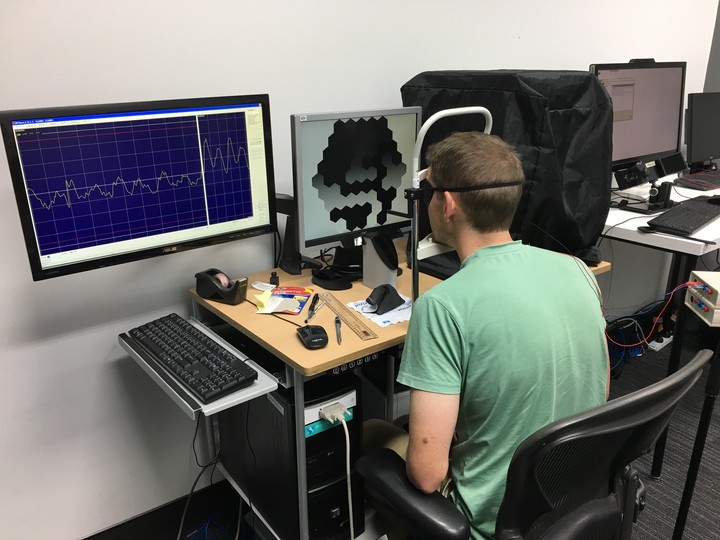
Abstract
To investigate the action of atropine on global flash multifocal electroretinogram (gmfERG) responses to retinal defocus.gmfERG recordings were made monocularly in 19 healthy adults under three lens-imposed defocus conditions (2 diopters myopic, 2 diopters hyperopic, and no defocus) before and 24 hours after instillation of 1 drop of 0.1% atropine. Signals reflecting activity from the outer and inner retina (direct [DC] and induced [IC] components respectively) were analyzed. Responses were grouped into either a central (0°-6°) or peripheral (6°-24°) retinal zone. The gmfERG responses were compared relative to the no defocus, no atropine condition.Within the central zone, atropine had no effect on the amplitudes and peak times of DC or IC responses to defocus. For IC responses in the peripheral zone, there was a significant interaction effect of atropine and defocus (F~2,36~ = 6.050, P = 0.011) with greater post-atropine amplitudes under myopic defocus (mean increase = 15.5%, 95% confidence interval [CI] = 5.6%-25.4%, P = 0.004). Atropine also had a significant main effect of increasing IC peak times (F~1,18~ = 9.722, P = 0.006). For DC responses, atropine had a significant main effect of increasing DC amplitudes (F1,18 = 7.821, P = 0.012) and peak times (F~1,18~ = 15.406, P = 0.001) regardless of sign of defocus. Our results imply that atropine acts in the inner layers of the peripheral retina to affect neuronal responses to myopic defocus, raising the possibility that atropine may potentiate the effects of myopic defocus in inhibiting eye growth.